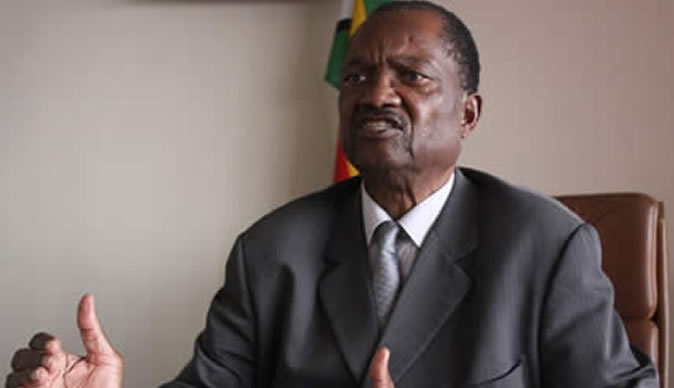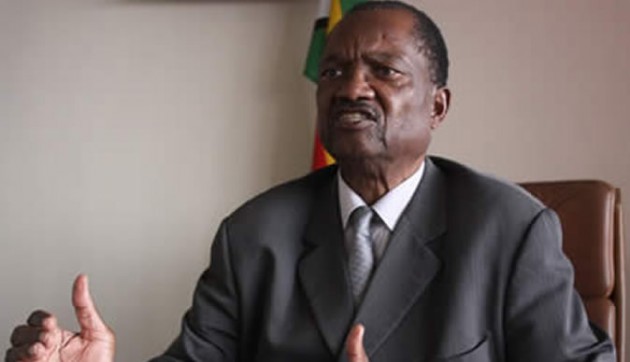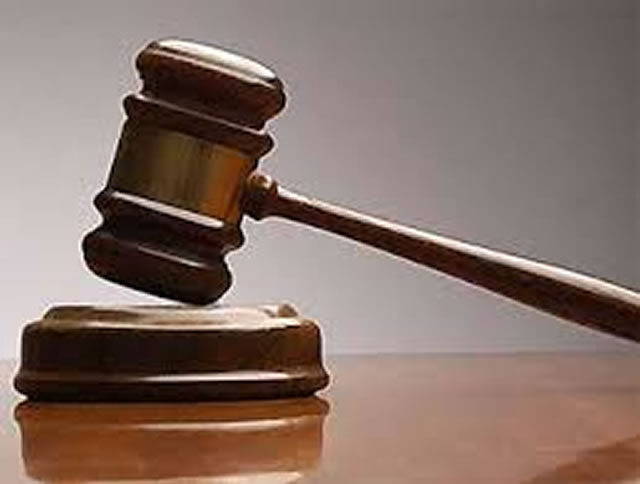One party, one centre of power, one direction

 Dr Keith Guzah Correspondent
Dr Keith Guzah Correspondent
It is now clear that the revolutionary Zanu-PF party had threatened to plunge into, or at least had shown traits of, what English philosopher Thomas Hobbes described as “a state of nature”.
Contending centres of power, anarchy and disorder (and at worst civil war) are the hallmarks of this “state of nature” where man’s ambitions are untrammelled, man is self-seeking, passions run wild, no rules obtain and there will be a war of each versus all and there is a constant fear of violent death.
It is Hobbes, who especially paints this gloomy picture of a man as a beast in a barbarous jungle. This situation arises where man is in a pre-civilised state or such regression is borne out of contending powers of, or leading to, a civil war.
According to Hobbes, order is only brought about by a sovereign (ruler) of unlimited power who is preferably a virtuous leader.
Now, after the rumpus in Zanu-PF, which had seen the creation of multiple centres of power in provinces and in the office of the second secretary of the party and national Vice President Joice Mujuru, the past few days, which saw the elimination of key figures linked to factionalism, it can be seen that the party is now headed towards a new direction from the state of anarchy. And President Mugabe, who in recent days has confronted the masterminds of factionalism such as Rugare Gumbo, Nicholas Goche, Kudakwashe Bhasikiti, among others, has moved to assert his rightful position as the only centre of power. The upcoming Zanu-PF 6th National People’s Congress is set to consolidate and seal this reality.
Before venturing to outline the benefits of and prospects in a new dispensation that is likely to come after the Congress, it will be useful to point out, for the purposes of historical record, that factionalism is not something new in Zanu-PF, formerly Zanu; as well as its cousins in the region and beyond.
What is important though is to note that a fresh impetus is given where the centre of power is reclaimed across historical epochs, rendering the longevity that has been seen in for example, South Africa’s ANC to China’s CPC.
In “Factions, Cabals and the Politics of Leadership Composition in the ANC”, political scientist Zwelethu Jolobe, for example illustrates the long history of factionalism in the century-old party, Africa’s oldest.
He writes: “Internal factions as well as cabals – small alliances of people united to promote their own private interests within the organisation – have emerged and changed periodically, centred on dominant groups at different times.”
This is from John Dube, the ANC’s founding president who led the majority of party branches in the then-Natal, away from the mother body to form the Natal Native Congress, through the 1930’s, featuring Pixley ka Isaka Seme, the ANC’s fifth president who led a conservative faction that campaigned to expel communists from the party; to Robert Sobukwe’s 1959 breakaway, the “Gang of Eight” (1975) right up to the current times where there was a schism between Thabo Mbeki and current President Jacob Zuma.
The contention and creation of centres of power that characterised the run up to December 2007 ANC congress – its 52nd – between Mbeki and Zuma are enough to make modern political legend.
One can even add that Zuma’s own sacking of rebellious ANC Youth League boss Julius Malema, who had threatened to “unmake” him at Mangaung two years ago, was to eliminate a centre of power in the youth leader.
In China, there are reports of factionalism pitting at least four major factions present (Tuanpai, Princelings, Qinghua Clique, Shanghai Gang), but which are counterbalanced by the powerful central committee and politburo.
A high profile case of factionalism involves Bo Xilai, the top politician who was sentenced to life in prison two years ago. Here is how, last year a newspaper put this in a factional context, and in light of the above: Bo was a “princeling”.
“Mr Bo’s father, Bo Yibo, was a well-known and powerful CPC revolutionary leader and associate of Mao Zedong. The younger Bo rose quickly through Party ranks, seen as crucial member of the “second Red generation” of CPC leaders who were taking control of the party. The current President and General Secretary Xi Jinping is another Red princeling – his father Xi Zhongxunwas a contemporary of Bo Yibo’s. Mr Bo also emerged as a key player in renewed ideological debates that were surfacing within the CPC ahead of its once-in-10-year leadership change last year.”
This is about a snippet of factionalism taking place in Zanu-PF’s sisters and ideological counterparts yet they remain strong: the CPC is 93 years old this year.
One driver, one direction
Is it not rather curious that the run-up to the Zanu-PF 6th National People’s Congress has been characterised by the skullduggery, infighting and a semblance of what Hobbes would call a state of nature? It has to be conceded that where power struggle, selfishness, passions and lusts are concerned reason and temperance, and ultimately direction is lost.
That is the nature of man, in Hobbesian terms. And how many people out there would easily recite the theme for this year’s congress?
A safe bet is that it’s just a minuscule, which makes it quite ironic in that it is not only expected that people will come for the important quintennial showpiece versed with the agenda but also that even if one were to grant the electoral fever, the emergent leadership should know its brief contained in the theme, which is a critical focus of this piece.
The theme for this year’s Congress is “Accelerated Implementation of Zim-Asset”.
It is trite to say that this theme is very apt, relative to Government’s overall thrust as deriving from its winning manifesto. What tickles the imagination is the aspect of “acceleration”, which is the critical operable in the theme.
If one were to accelerate, say a car, that is increase its speed or distance covered relative to time, would it be helpful to do so when the road is not clear or the car has no brakes? What about the capacity and disposition of the driver and the safety of passengers? All these aspects are critical, in their analogous sense.
We have established that the car, after the elimination of contending centres of power or fighting for the wheel, is assuming full control, which the passengers, read the electorate, finds assuring.
The car needs direction and the clearing of barriers. The Zanu-PF “purges”, which will see a reconfiguration of the party and Government during and after Congress ensures that there is a clear direction and implementation of Government policy of Zim-Asset.
It has been previously complained by the writer how some important undertakings such as the indigenisation drive had lost direction.
Thankfully remedial is well on course.
Speed can also be achieved through purposive deployment of people of ability, which meritocracy ensures that the right men and women are given tasks they can deliver.
It all looks good, with President Mugabe on the driving seat, to indulge in acceleration that will bring sustainable socio-economic transformation of the people of Zimbabwe.
- Dr Guzah is the president of National Business Council of Zimbabwe, ZANU-PF Mashonaland West provincial secretary for indigenisation and publisher of “Empowerment Today” magazine.










Comments